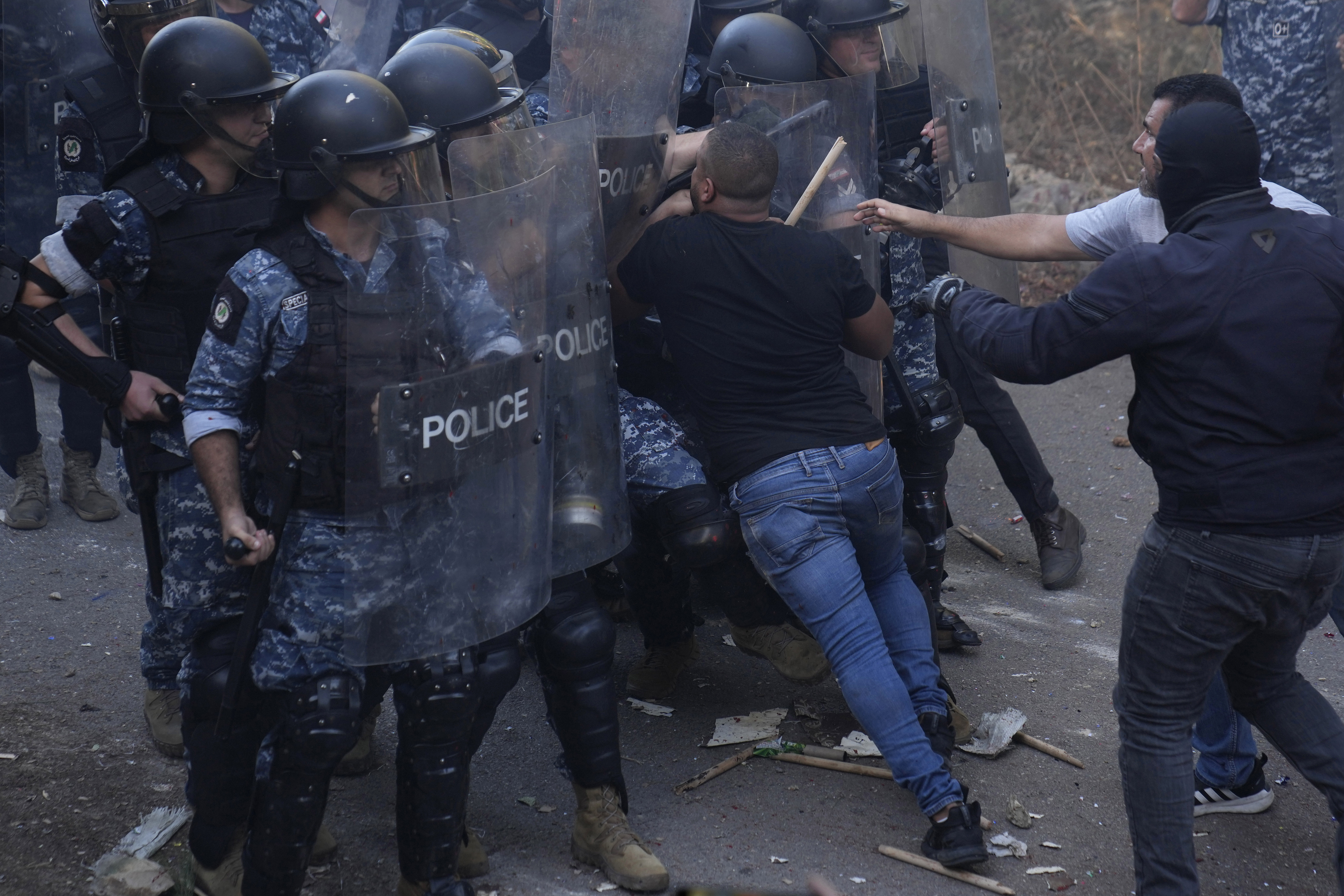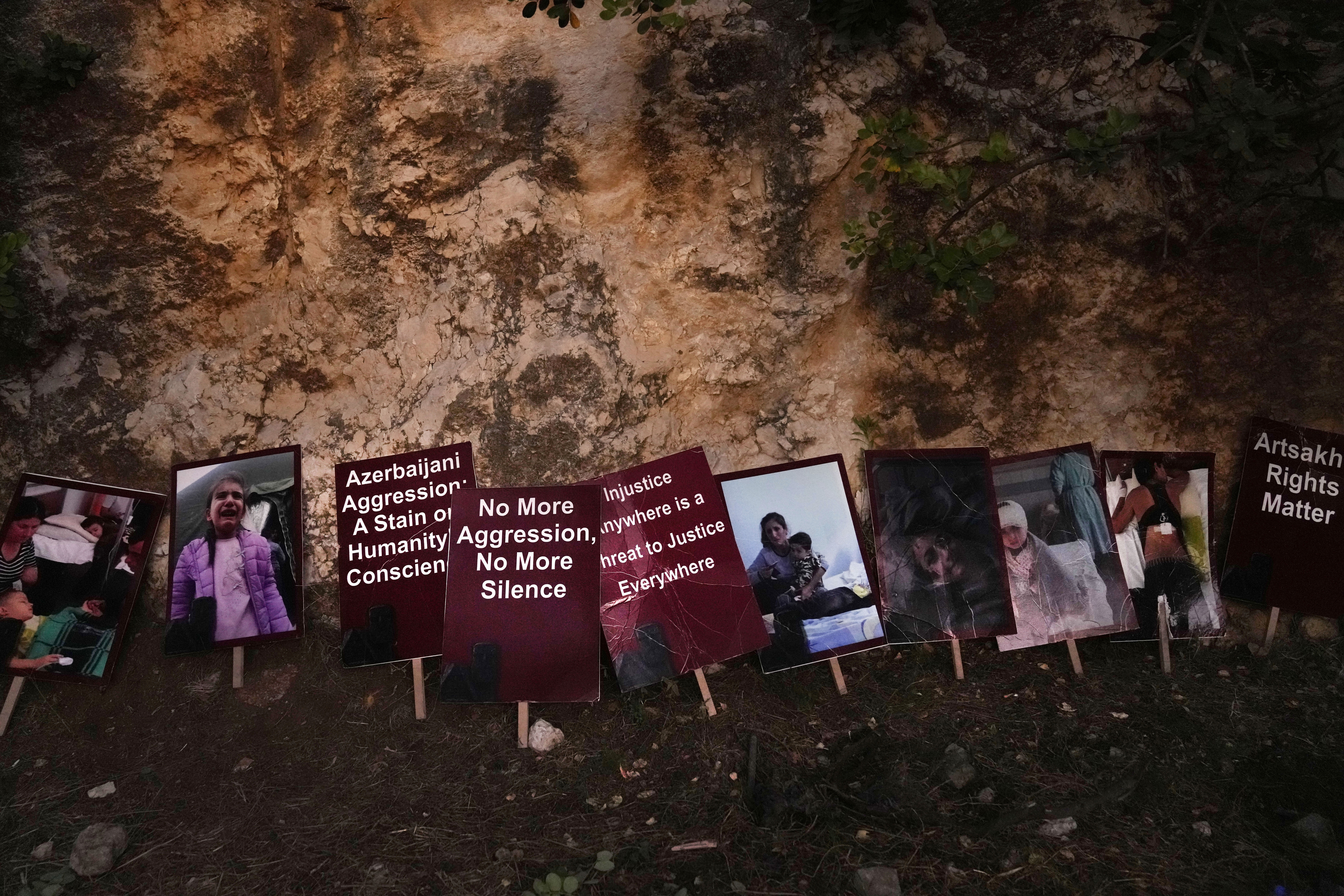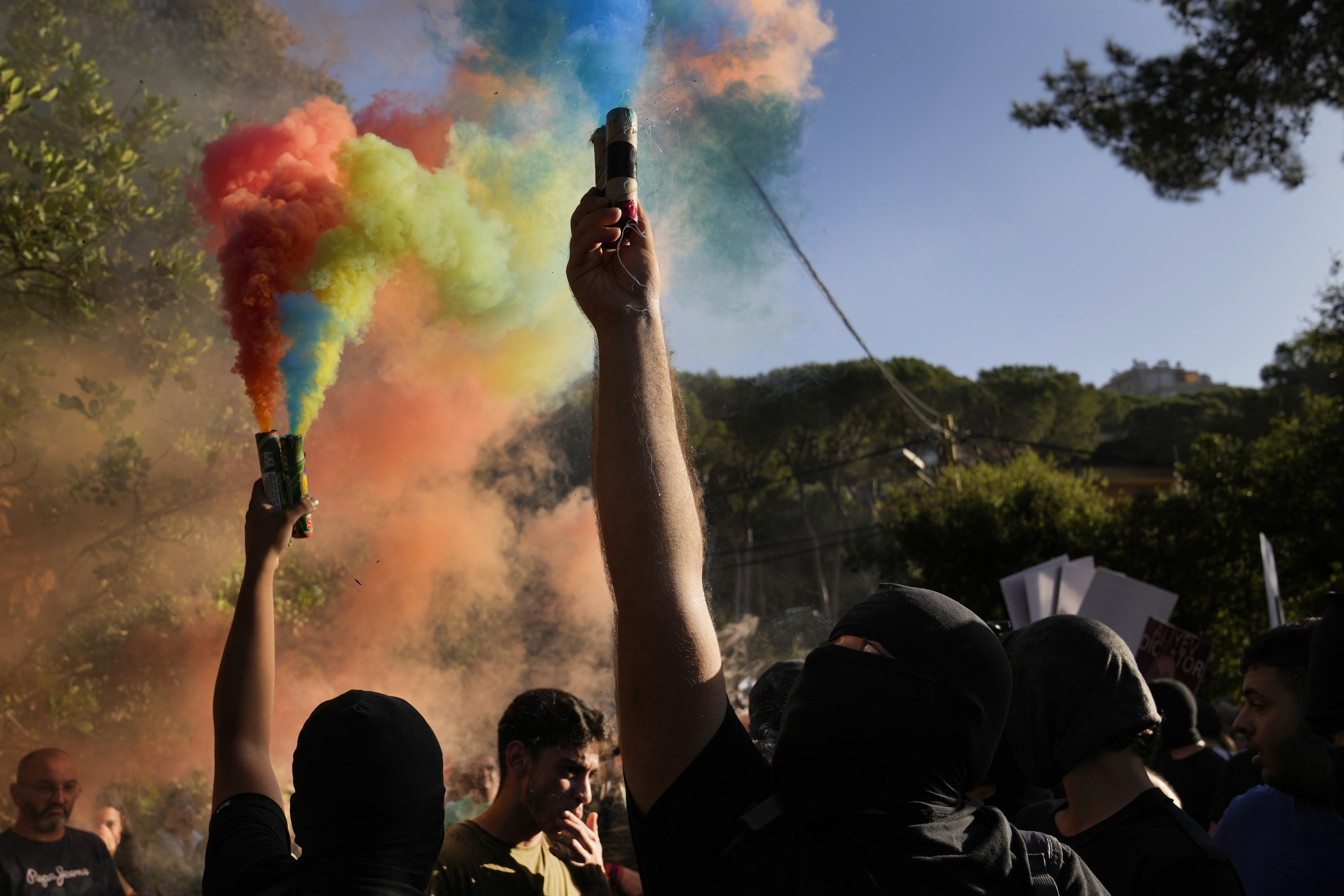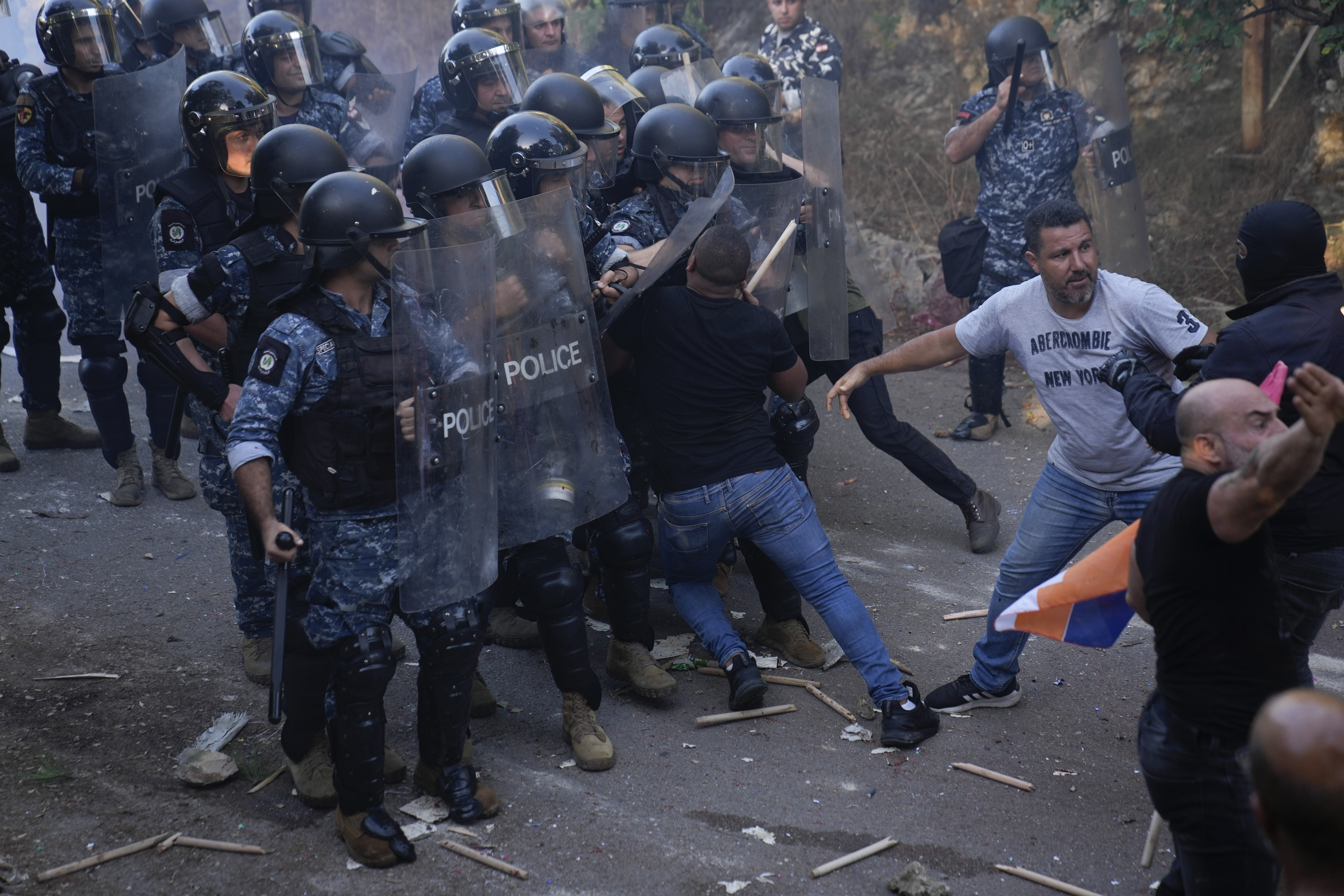BEIRUT (AP) – The swift fall of the Armenian-majority enclave of Nagorno-Karabakh to Azerbaijani troops and the exodus of much of its population has stunned the large Armenian diaspora around the world. Traumatised by a widely acknowledged genocide a century ago, they fear the erasure of what they consider a central and beloved part of their historic homeland.
The separatist ethnic Armenian government in Nagorno-Karabakh on Thursday announced that it was dissolving and that the unrecognised republic will cease to exist by year’s end -– a seeming death knell for its 30-year de facto independence.

Azerbaijan, which routed the region’s Armenian forces in a lightning offensive last week, has pledged to respect the rights of the territory’s Armenian community.
Tens of thousands of people — more than 80 per cent of the region’s population — had fled to Armenia by Friday morning, and the influx continues, according to Armenian officials.
Many in Armenia and the diaspora fear a centuries-long community in the territory they call Artsakh will disappear.
Armenian Prime Minister Nikol Pashinyan has termed it “a direct act of an ethnic cleansing.” Azerbaijan’s Foreign Ministry strongly rejected the accusation, saying the departures are a “personal and individual decision and has nothing to do with forced relocation.”
Armenians say the loss is a historic blow. Outside the modern country of Armenia itself, the mountainous land was one of the only surviving parts of a heartland that centuries ago stretched across what is now eastern Turkey, into the Caucasus region and western Iran.
Many in the diaspora had pinned dreams on it gaining independence or being joined to Armenia.

Nagorno-Karabakh was “a page of hope in Armenian history,” said Narod Seroujian, a Lebanese-Armenian university instructor in Beirut.
“It showed us that there is hope to gain back a land that is rightfully ours. … For the diaspora, Nagorno-Karabakh was already part of Armenia.”
Hundreds of Lebanese Armenians on Thursday protested outside the Azerbajani Embassy in Beirut. They waved flags of Armenia and Nagorno-Karabakh and burned pictures of the Azerbaijani and Turkish presidents. Riot police lobbed tear gas when they threw firecrackers at the embassy.
Ethnic Armenians have communities around Europe and the Middle East and in the US. Lebanon is home to one of the largest, with an estimated 120,000 of Armenian origin, four per cent of the population.
Most are descendants of those who fled the 1915 campaign by Ottoman Turks in which some 1.5 million Armenians died in massacres, deportations and forced marches. The atrocities, which emptied many ethnic areas in eastern Turkey, are widely viewed by historians as genocide.

Turkey rejects the description of genocide, saying the toll has been inflated and that those killed were victims of civil war and unrest during World War I.
In Bourj Hammoud, the main Armenian district in Beirut, memories are still raw, with anti-Turkey graffiti common. The red-blue-and-orange Armenian flag flies from many buildings.
“This is the last migration for Armenians,” said Harout Bshidikian, 55, sitting in front of an Armenian flag in a Bourj Hamoud cafe. “There is no other place left for us to migrate from.”
Azerbaijan says it is reuniting its territory, pointing out that even Armenia’s prime minister recognised that Nagorno-Karabakh is part of Azerbaijan. Though its population has been predominantly ethnic Armenian Christians, Turkish Muslim Azeris also have communities and cultural ties to the territory, particularly the city of Shusha, famed as a cradle of Azerbaijani poetry.
Following the breakup of the Soviet Union, Nagorno-Karabakh came under control of ethnic Armenian forces backed by the Armenian military in separatist fighting that ended in 1994.
Azerbaijan took parts of the area in a 2020 war. Now after this month’s defeat, separatist authorities surrendered their weapons and are holding talks with Azerbaijan on reintegration of the territory into Azerbaijan.
Thomas de Waal, a senior fellow at the Carnegie Europe think tank, said Nagorno-Karabakh had become “a kind of new cause” for an Armenian diaspora whose forebearers had suffered the genocide.
“It was a kind of new Armenian state, new Armenian land being born, which they projected lots of hopes on. Very unrealistic hopes, I would say,” he added, noting it encouraged Karabakh Armenians to hold out against Azerbaijan despite the lack of international recognition for their separatist government.

Armenians see the territory as a cradle of their culture, with monasteries dating back more than a millennium.
“Artsakh or Nagorno-Karabakh has been a land for Armenians for hundreds of years,” said Lebanese legislator Hagop Pakradounian, head of Lebanon’s largest Armenian group, the Armenian Revolutionary Federation.
The fall of Nagorno-Karabakh is not just a reminder of the genocide, “it’s reliving it,” said Diran Guiliguian, a Madrid-based activist who holds Armenian, Lebanese and French citizenship.
He said his grandmother used to tell him stories of how she fled in 1915. The genocide “is actually not a thing of the past. It’s not a thing that is a century old. It’s actually still the case,” he said.
Seroujian, the instructor in Beirut, said her great-grandparents were genocide survivors, and that stories of the atrocities and dispersal were talked about at home, school and in the community as she grew up, as was the cause of Nagorno-Karabakh.
She visited the territory several times, most recently in 2017. “We’ve grown with these ideas, whether they were romantic or not, of the country. We’ve grown to love it even when we didn’t see it,” she said. “I never thought about it as something separate” from Armenia the country.





